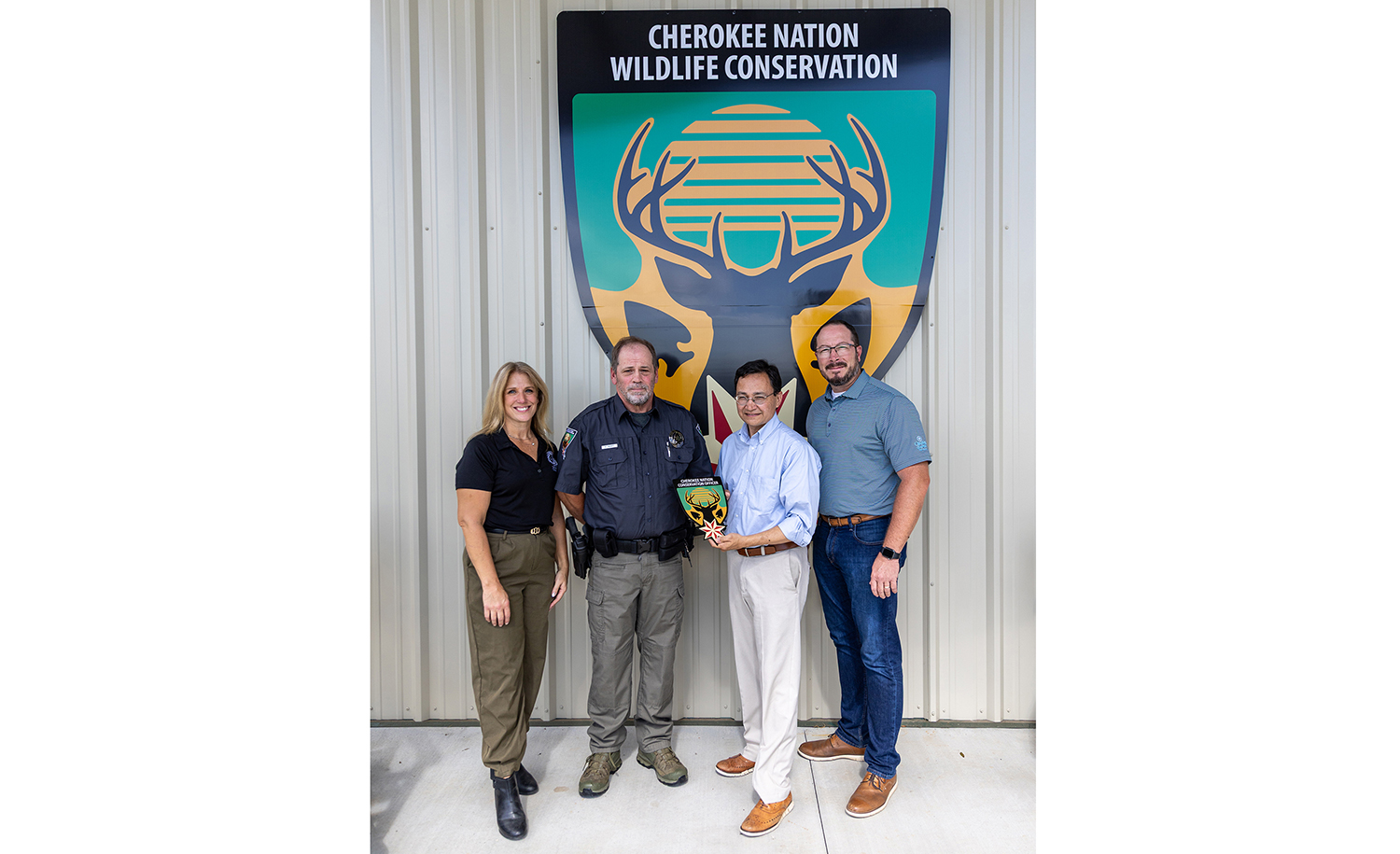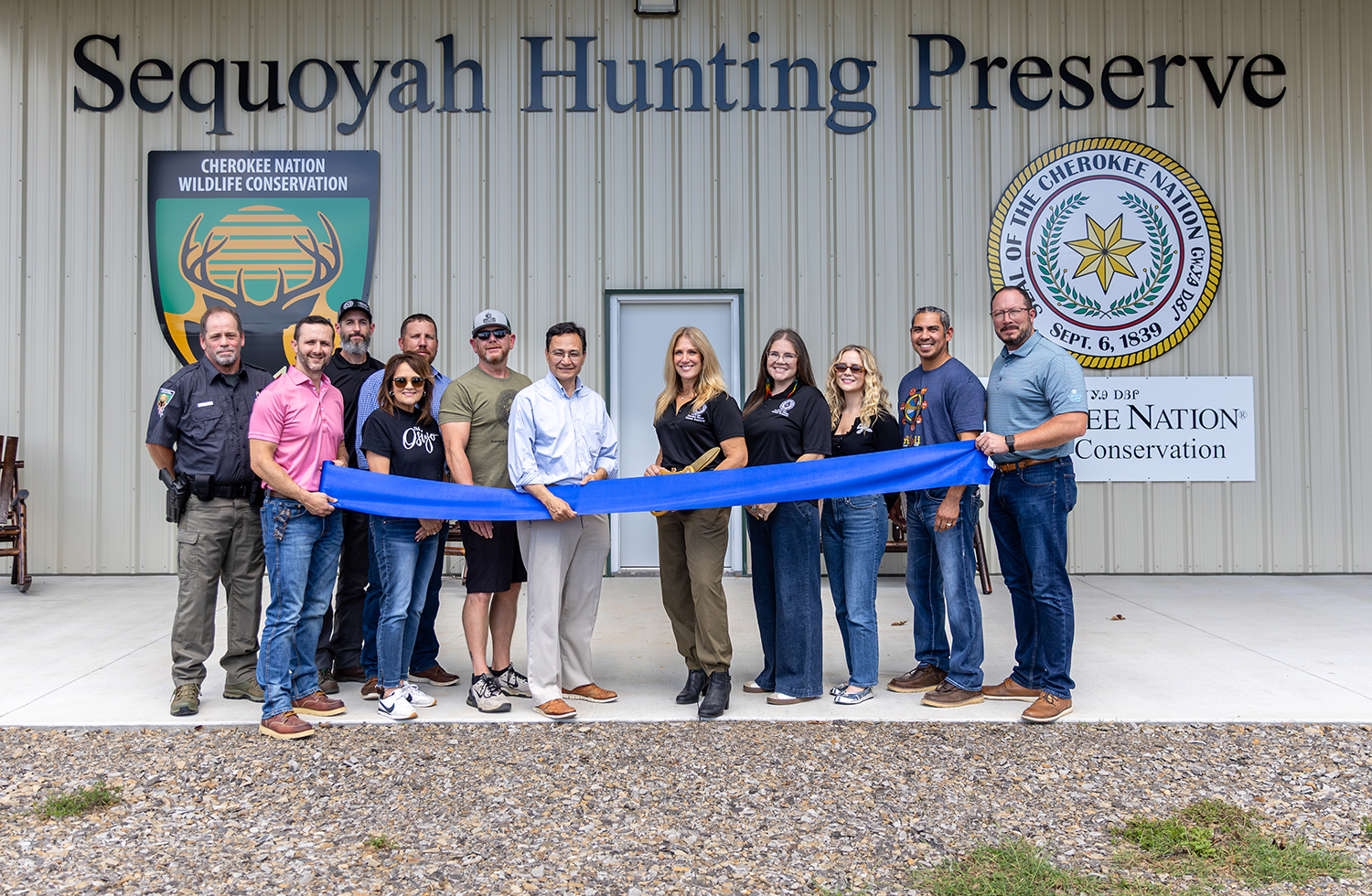AKINS, Okla. — The Cherokee Nation is preparing for the fall hunting season with its first Conservation Officer and the recent completion of a new Sequoyah Hunting Preserve building to serve tribal citizens.
Cherokee citizen Brek Henry is serving as the tribe’s first Conservation Officer and will be responsible for enforcing Cherokee Nation laws and regulations related to the protection and conservation of natural resources. As the tribe’s first official Conservation Officer, Henry will patrol tribal lands, investigate reports of wildlife violations, educate the public on wildlife conservation, fishing practices, and native species, assist in wildlife research, maintain records of wildlife movement and incident reports, and perform law enforcement in the preservation of peace, with a focus on wildlife and conservation-related violations.
“The appointment of Brek Henry as our first Conservation Officer marks a significant step in the Cherokee Nation's ongoing commitment to protect and preserve our natural resources,” said Cherokee Nation Principal Chief Chuck Hoskin Jr. “This role is crucial in enforcing our conservation laws, educating our citizens, and ensuring the sustainable management of our wildlife and lands. Mr. Henry's extensive experience makes him an ideal choice to lead these efforts, which are vital for maintaining our cultural traditions and securing a thriving ecosystem for future generations of Cherokees.”
Henry is a former game warden who worked for the State of Oklahoma for 30 years, including 12 years as a supervisor. He brings an extensive knowledge of wildlife laws and practical hunting and fishing practices.
Henry is a commissioned officer under the authority of the Cherokee Nation Marshal, working under the direction of the Secretary of Natural Resources.

“Our Cherokee Nation Marshal Service has done an outstanding job of protecting our natural resources over the past couple of years, and we really appreciate their role,” said Deputy Chief Bryan Warner. “Now, adding a conservation officer under the arm of the Secretary of Natural Resources Office gives us the tools and resources we need to take that next step of exercising our sovereignty and protecting our land, water and wildlife.”
Henry is a Gore, Oklahoma, native.
“As a Cherokee citizen I feel honored and proud to be selected for the position,” Henry said. “I hope to use the knowledge I’ve gained over the past 30 years to help further protect the land, water and wildlife resources of the tribe and to assist citizens any way I can.”
In 2021, Chief Hoskin signed into law the Cherokee Nation Park, Wildlands, Fishing and Hunting Preserve Act, which designated four new reserves. Among those reserves is the Sequoyah Hunting Preserve, which contains more than 4,000 acres of property in Sequoyah County made accessible for hunting, fishing, and traditional outdoor activities. The preserve also helps ensure food security for Cherokee families through hunting and gathering opportunities.
The Cherokee Nation recently completed construction of a new facility at the Sequoyah Hunting Preserve, providing office space and classroom space for hunting and other educational courses for citizens. Tribal leaders visited the facility Sept. 26 to tour the building and officially cut the ribbon.
Although tribes have guaranteed hunting and fishing rights on their reservations under their treaties with the United States, Cherokee Nation previously held a compact with the State of Oklahoma that allowed for a coordinated, intergovernmental system that provided hunting and fishing opportunities for tribal citizens while generating revenue and federal funding for wildlife management programs across the state.
When Oklahoma Gov. Stitt failed to renew standing hunting and fishing compacts with tribal governments, the Cherokee Nation joined the Intertribal Council of the Five Tribes to create the Five Tribe Wildlife Management Reciprocity Agreement. This agreement allows tribal members and citizens of the Five Tribes to utilize their tribal memberships to enjoy hunting and fishing in participating tribes’ treaty territories. Most tribes allow for their tribal membership cards to serve as their credential or license.
The Five Tribe Wildlife Management Reciprocity Agreement allows the Five Tribes to collaborate on wildlife management within their reservations and enhance their ability to effectively manage natural resources in a sustainable manner.
This fall’s hunting season marks the fifth year that the Cherokee Nation is hosting controlled deer hunts at the Sequoyah Hunting Preserve. Categories for this year’s controlled draw hunt participants include Cherokee youth, Cherokee speakers, Cherokee elders, Cherokee veterans, and an open hunt for those chosen from the drawing.

